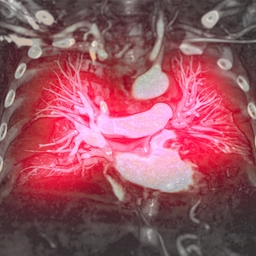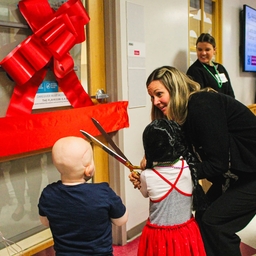Researchers at Children’s Hospital of Philadelphia (CHOP) and the Children’s Oncology Group (COG) found that larotrectinib, an oral drug that stops cancer-cell growth, was highly effective in pediatric patients with newly diagnosed infantile fibrosarcoma (IFS) or other solid tumors that have a neurotrophic receptor tyrosine kinase (NTRK) gene fusion without a known acquired resistance mutation. The study, published today in the Journal of Clinical Oncology, is the first COG trial to test precision medicine in a front-line setting across all different types of solid tumors based on a genetic biomarker rather than histology. It is poised to redefine the approach to treatment for newly diagnosed fibrosarcoma and other solid tumors with the NTRK gene fusion, potentially reducing or eliminating the need for these patients to receive chemotherapy.

